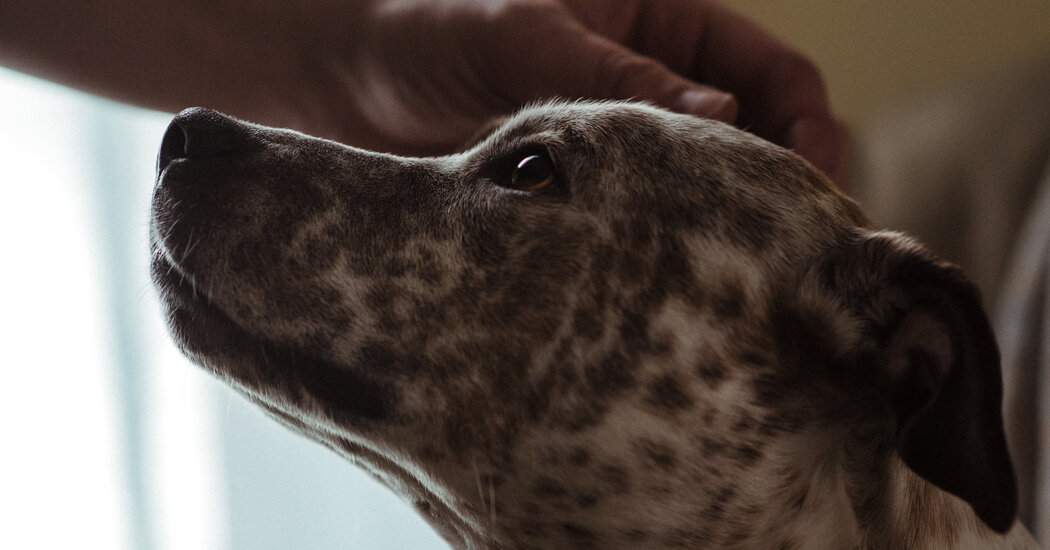

Our last dog, Millie, taught me that dogs carry trauma with them, just as we do. Millie, a terrier mix, didn’t know why she feared what she feared, but she knew that my response to her fears would be kindness, patience and, often, a delicious chicken treat. Whenever we passed a big, scary dog on our walks or a giant, rumbling truck, she would look up hopefully, almost skipping when she saw my hand reaching for my pocket.
The triumph of hope over irrevocable trauma — is it any wonder that Millie’s unexpected death was what finally broke my conviction that better times would soon be on the way?
As much as I hate living in a house without a dog, it was months before I felt ready for a new one, and by the time I finally started looking, it had become much harder to adopt. Everyone, it seems, wants a pandemic companion. There are six new puppies on our street alone, with two more due from breeders this summer.
I understand why rescue organizations are so careful about pet placements. Many year-old dogs available for adoption today are pandemic puppies who turned out to be more work, or more costly, than their adopters bargained for. Every day volunteers look into the desolate faces of pets left at the shelter by the only families they have ever known — or, worse, abandoned on the streets — and that’s why these organizations work so hard to avoid approving a home that isn’t an ideal match for that particular pet.
It is also why so many dogs I applied for went to younger people or runners or families with children and other dogs or homes with a large yard or some other requirement my household didn’t meet.
Then Rascal appeared. A pandemic-born mixed breed with a ruinous case of fleas, he was exactly the size and age we were looking for: small enough to travel with us, young enough to be part of our family for years. There were more than 40 applications for him. By some miracle, our home was the best match.
Two hours after he arrived, Rascal was curled up in my lap. A day later, he knew his new name, a name he lives up to in ways that make me laugh out loud: stealing shoes from the shoe basket and hiding them around the house, grabbing the book I’m reading and running away with it, sneaking a sip of iced tea when my back is turned. Every morning, he likes to perch on the top of a chair in our family room, watching birds through the window. He cannot possibly catch a bird through that glass, and I think he surely knows it. He keeps hoping anyway.
Margaret Renkl, a contributing Opinion writer, is the author of the books “Late Migrations: A Natural History of Love and Loss” and the forthcoming “Graceland, at Last: Notes on Hope and Heartache From the American South.”
The Times is committed to publishing a diversity of letters to the editor. We’d like to hear what you think about this or any of our articles. Here are some tips. And here’s our email: letters@nytimes.com.
Follow The New York Times Opinion section on Facebook, Twitter (@NYTopinion) and Instagram.